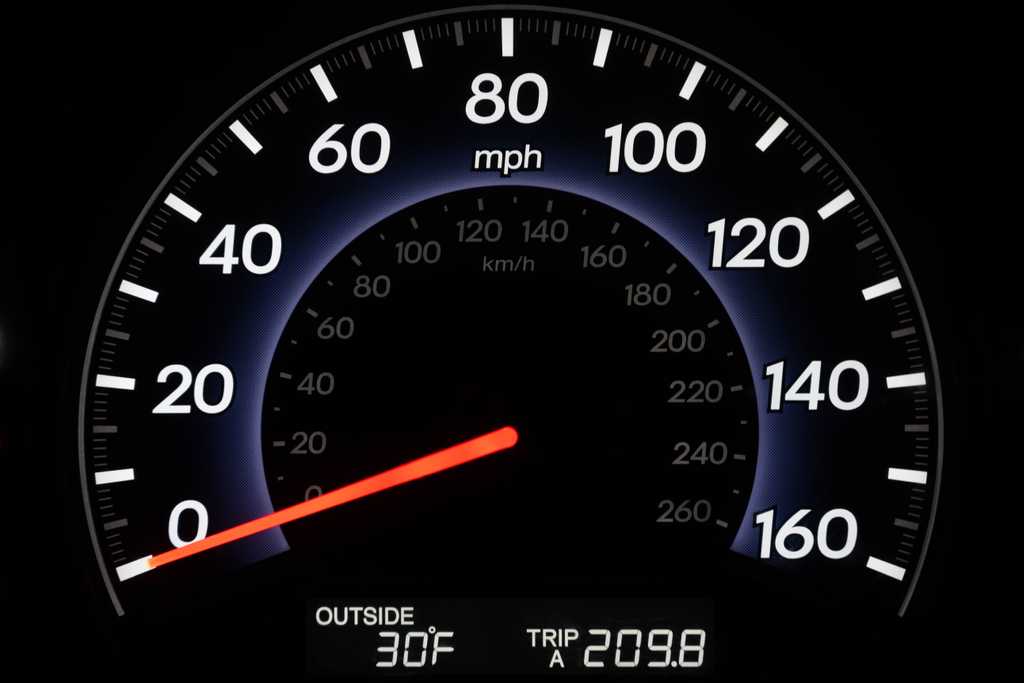Aside from car payments, auto insurance is often one of the biggest ongoing expenses of owning a vehicle. A NAIC survey found that the average premium in the U.S. is $1,134 per year, although many drivers pay much more than that. Premiums are generally based on the car you drive, your driving record, and how many miles you drive.
While auto insurers offer many discounts, the easiest way to reduce your premiums is by driving less. In this article, we'll explain what usage-based insurance is and how you can be rewarded for safe driving behaviors and driving fewer miles.
How usage-based insurance works
Usage-based insurance works by plugging a telemetry device into your vehicle, installing an app on your phone, or both. With the aid of these devices, auto insurance companies can track the number of miles you drive in real-time. The devices look at the number of miles, what time of day you drive, hard braking and acceleration, and how often you touch your phone, to name a few. This data enables them to adjust your premiums to provide a customized policy based on your personal habits, rather than broad averages for similar drivers.
The mobile apps also provide feedback to improve your driving. This enables you to correct your risky behaviors to earn bigger discounts in the future.
In exchange for sharing this personal information, the auto insurance company offers discounted premiums based on the number of miles you drive and how you drive. Auto insurance policies usually factor in gender, age, marital status, and where you live when determining your per mileage rate. However, the actual premiums for usage-based insurance focus primarily on your driving.
Many insurers will not raise your premiums for risky driving patterns, but they also won't provide safe driving discounts either. Some companies even offer a discount just for signing up for a pay-per-mile auto insurance policy.
What is pay-per-mile car insurance?
Most auto insurance policies require a driver to self-report how many miles they drive in a year. Give a number that is too high, and you could be paying too much in auto insurance premiums. Estimate too low and the auto insurance company may cancel your policy for underreporting the risks of your driving. A study by the California Department of Insurance found that approximately 25% of drivers understate their annual mileage by 6,000 miles or more.
The more miles that a person drives, the higher their chances are of having an accident, getting a ticket, or submitting a claim. People that drive fewer miles should be compensated with lower auto insurance premiums because they have a reduced risk of an incident.
Pay-per-mile car insurance seeks to eliminate the guesswork and charge customers premiums according to how much they actually drive. This helps drivers save money and insurance companies adequately price policies based on the actual risk.
Who can benefit from usage-based car insurance?
Usage-based car insurance is an ideal choice for people who drive fewer miles than the average person. Here are a few examples of who can benefit from lower premiums with pay-per-mile car insurance:
- Remote workers and telecommuters
- People who use public transportation
- Drivers who participate in a carpool
- Retirees who no longer commute
- Students at college without a vehicle
Low mileage car insurance is not a good choice for everyone. People who have a long commute, drive for work, or drive for a rideshare company may not benefit from switching their policy.
For people that take the occasional road trip, many insurers place a cap on the number of miles charged per day (typically 150 to 250 miles). This ensures that you won't receive a surprise bill for going over your usual mileage.
How much money can I save?
Whether you work from home, are retired, or just don't use your car very much, the opportunity to save money by switching to low mileage car insurance can be huge. The savings with usage-based insurance varies by the auto insurance company, so it pays to shop around.
Auto insurance company Metromile estimates that 65% of drivers are overpaying for their coverage. The typical savings when switching to usage-based insurance is 10% to 20%, but discounts can be higher. Some companies, like esurance, provide a discount just for signing up for pay-per-mile car insurance. Assuming that you're paying the average annual premium of $1,134, a 20% savings would be $226 per year.
Your personal savings will vary based on the number of miles you drive, your driving habits, and other behaviors, like using your phone while driving. Before you make the switch, consider a test drive. Some insurance companies, like Progressive and Metromile, allow you to plug in their device to let you know what your potential savings can be before committing to the switch.
What is considered low mileage?
The average person drives about 13,500 miles every year, according to the U.S. Department of Transportation Federal Highway Administration. People that drive less than this may qualify for a discount on their auto insurance premiums.
The definition of "low mileage" varies according to each auto insurance company. Because of this, it pays to understand your true driving habits and the policies of the companies you are considering switching to. Here are a few examples of what companies define as low-mileage" driving per year:
- Farm Bureau - 7,500 miles
- Mile Auto - 10,000 miles
- Nationwide - 8,000 miles
- PEMCO - 8,000 miles
Companies that offer low mileage discounts
Auto insurance companies can offer low mileage discounts without requiring a tracking device or mobile app. This approach is typically on the honor system where customers provide the number of miles driven without the insurance company verifying whether or not it is accurate. However, some companies require customers to submit mileage readings to validate the actual number of miles driven.
In most cases, the insurance company asks questions about your driving habits during the application process to determine your estimated annual mileage. These questions include how often you drive to work or school and the distance to those locations, whether you drive for work, and the number of personal miles that you drive each year.
Below are some of the auto insurance companies that offer low-mileage discounts:
- American Family Insurance
- Automobile Association of America (AAA)
- Commerce Insurance
- PEMCO
- USAA
Keep in mind that policies and discounts vary from state-to-state. This means that coverage or discounts may not be available to you in the state where you live.
Companies that offer pay-per-mile car insurance
Pay-per-mile car insurance takes discounts a step further than low mileage car insurance. Because the insurance company can track your actual miles driven, rather than an estimate, you may receive bigger discounts on your auto insurance.
These companies use apps or plug-in devices to track your mileage and the way you drive. The safer you drive and the fewer miles you use, the bigger discount you'll receive. Here are many of the auto insurance companies that offer pay-per-mile car insurance and the apps they use to track your driving:
- Esurance Drivesense
- Farm Bureau Driveology
- Farmers Signal
- Geico DriveEasy
- Mercury Insurance RealDrive
- Metromile
- Nationwide SmartMiles
- Safeco RightTrack
- USAA SafePilot
Due to different state insurance rules, not all of these auto insurance companies and services are available in every state. Contact the company or request a quote to determine if you're eligible for one of its usage-based insurance policies.
The bottom line
While many people adjust coverage levels and deductibles to reduce their auto insurance premiums, you don't have to sacrifice protection to save money with usage-based insurance. These auto insurance policies reward drivers for safe-driving behaviors and price the policy based on the number of miles driven. The discounts can be significant, so these pay-per-mile car insurance policies can be an excellent choice for people who drive less and are willing to share their car data with an insurance company.

